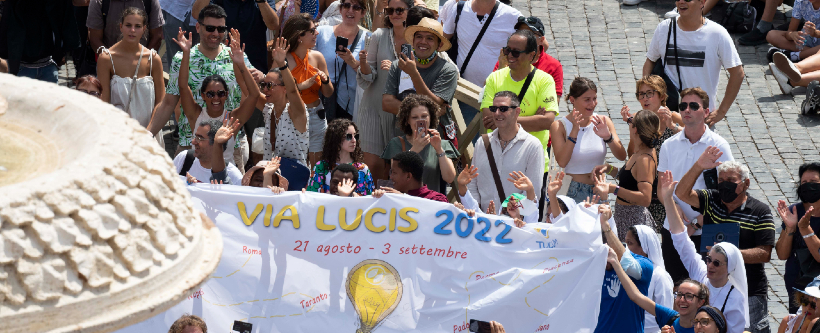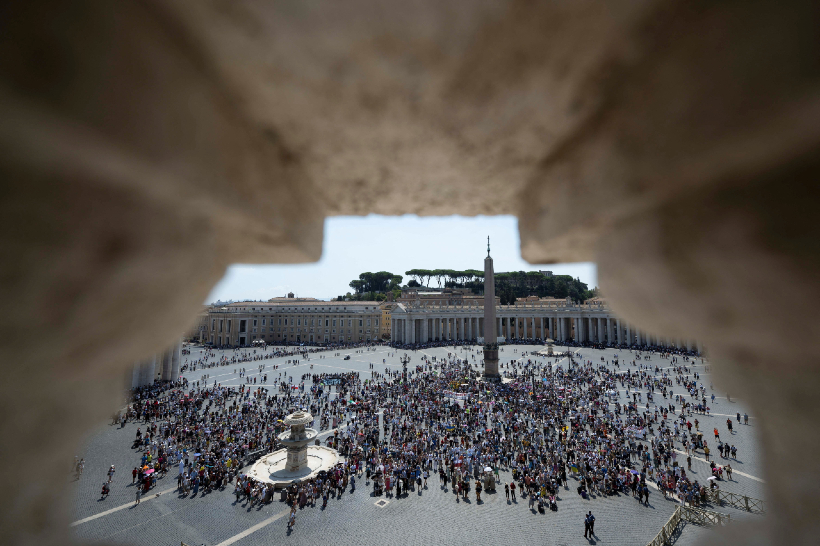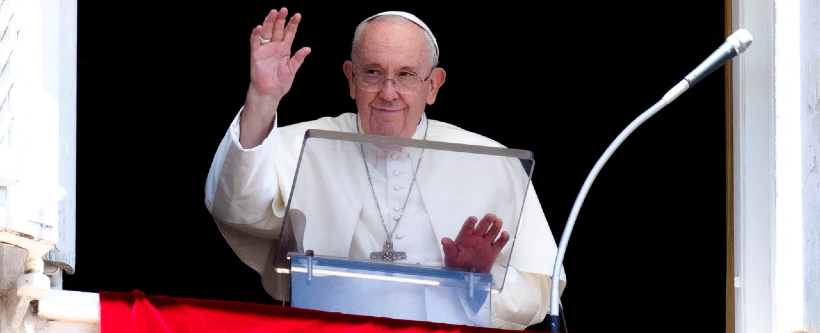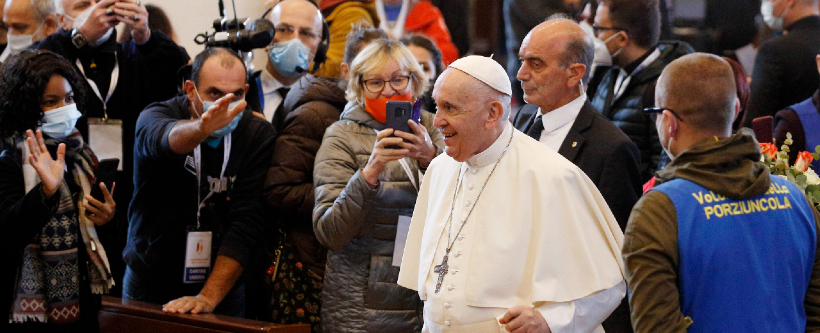
On this second Sunday of Advent, the liturgy places us in the school of John the Baptist, who preached a “baptism of repentance for the forgiveness of sins.” And perhaps we ask ourselves, “Why do we have to convert? Conversion is for an atheist who becomes a believer or a sinner who becomes just. But we don’t need it. We are already Christian.”
We can ask ourselves this and in this regard say, “we’re ok.” But that’s not true. Thinking like this, we don’t realize that it is precisely because of this presumption — that we are Christians, good in every way, that we’re doing the right thing — precisely because of this presumption we must convert: from the supposition that, overall, things are going well like they are and we don’t need any conversion.
But let us ask: Is it true that in the various situations and circumstances of life, we have in us the same sentiments that Jesus had? Is it true that we feel as Christ felt? For example, when we suffer some evil or some affront, can we react without animosity and forgive from the heart those who ask us for forgiveness? How difficult it is to forgive, eh? How difficult! “You’re going to pay for this” — that phrase comes spontaneously, yes? Or when we are called to share joys and sadnesses, do we know how to truly cry with the one who cries and rejoice with the one who rejoices? Or when we should share our faith, do we know how to do it with courage and simplicity, without being ashamed of the Gospel? And in this way, we can ask ourselves so many questions. We’re not alright. We should always convert, to have the sentiments that Jesus had.
The voice of the Baptist still cries in humanity’s deserts of today, which are — what are the deserts of today? — they are the closed minds and the hardened hearts. And [his voice] calls us so that we ask ourselves if we actually are following the right path, living a life according to the Gospel. Today, as then, he admonishes us with the words of the Prophet Isaiah: “Prepare the way of the Lord!” It is a pressing invitation to open the heart and receive the salvation that God incessantly offers, almost stubbornly, because he wants us all to be free of the slavery of sin. But the text of the prophet amplifies this voice, pre-announcing that “all flesh shall see the salvation of God.” And salvation is offered to every man, and every people, without excluding anyone, to each one of us. None of us can say, “I’m a saint; I’m perfect; I’m already saved.” No. We should always accept this offer of salvation, and that’s what the Year of Mercy is for: to advance farther in this journey of salvation, this path that Jesus has taught us. God wants all mankind to be saved through the mediation of Jesus, the only mediator.
Therefore, each one of us is called to make Jesus known to those who still do not know him. But this is not to proselytize. No. It is to open a door. “Woe to me if I do not preach the Gospel!” St. Paul declared. If Our Lord Jesus has changed our lives, and he changes it every time we draw close to him, how can we not feel a passion to make him known to those we find at work, at school, in our communities, in the hospital, in meeting places? If we look around us, we find people who would be disposed to beginning — or beginning again — a journey of faith if they were to find Christians who are in love with Jesus. Shouldn’t we be and couldn’t we be these Christians?
I leave you with this question: Am I truly in love with Jesus? Am I convinced that Jesus offers me and gives me salvation? And, if I am in love, I have to make him known! But we should be courageous: make low the mountains of pride and rivalry; fill in the valleys dug by indifference and apathy; make straight the pathways of our laziness and our comforts.
May we be aided in this by Our Lady — who is Mother and who knows how to do it — to bring down the walls and the obstacles that impede our conversion, that is, our journey toward the encounter with the Lord. He alone. Only Jesus can fulfill all the hopes of man!
[Angelus]
Dear brothers and sisters,
I am following with close attention the work of the conference on climate underway in Paris. And a question I asked in Laudato Si’ comes again to my mind: “What kind of world do we want to leave to those who come after us, to children who are now growing up?” For the good of our common home, of all of us and of the future generations, in Paris every effort should be directed toward mitigating the impact of climate change and, at the same time, to curb poverty and to bring human dignity to flourish. The two choices go together. Stop climate change and curb poverty so that human dignity flourishes. Let us pray so that the Holy Spirit enlightens all those who are called to make such important decisions and gives them the courage to always have the greater good of the human family as the criteria to guide their decisions.
Tomorrow, we mark the 50th anniversary of a memorable event between Catholics and Orthodox. On Dec. 7, 1965, in the vigil of the conclusion of Vatican II, with a common declaration from Paul VI and Ecumenical Patriarch Athenagoras, the sentences of excommunication exchanged between the Church of Rome and Constantinople in 1054 were eliminated. It is truly providential that this historic gesture of reconciliation, which created the conditions for a new dialogue between Orthodox and Catholics in love and truth, would be marked precisely at the beginning of the Jubilee of Mercy. There is no authentic path toward unity without a petition for forgiveness, to God and between us, for the sin of division. Let us recall in our prayer the dear Ecumenical Patriarch Bartholomew and the other leaders of the Orthodox Churches and let us ask the Lord that relations between Catholics and Orthodox be always inspired by fraternal love.
Yesterday in Chimbote, Peru, Conventual Franciscans Michael Tomaszek and Zbigniew Strzałkowski were beatified. and Alessandro Dordi, a fidei donum priest assassinated in hatred of the faith in 1991. May these martyrs’ fidelity in following Jesus give all of us, especially Christians persecuted in different parts of the world, the strength to give testimony to the Gospel with courage.
I greet all of the pilgrims from Italy and from various countries. There are a lot of banners, eh? In particular, I greet the liturgical choir of Milherós de Poiares and the faithful of Casal de Cambra, Portugal. I greet the participants in the congress of the Movement of Educational Commitment of Catholic Action, the faithful of Biella, Milán, Cusano Milanino, Neptuno, Rocca di Papa and Foggia, those being confirmed from Roncone and Settimello, the band of Calangianus and the choir of Taio.
I wish you all a good Sunday and a good preparation for the beginning of the Year of Mercy. Please don’t forget to pray for me. Have a good lunch and see you soon!






Facebook Comments